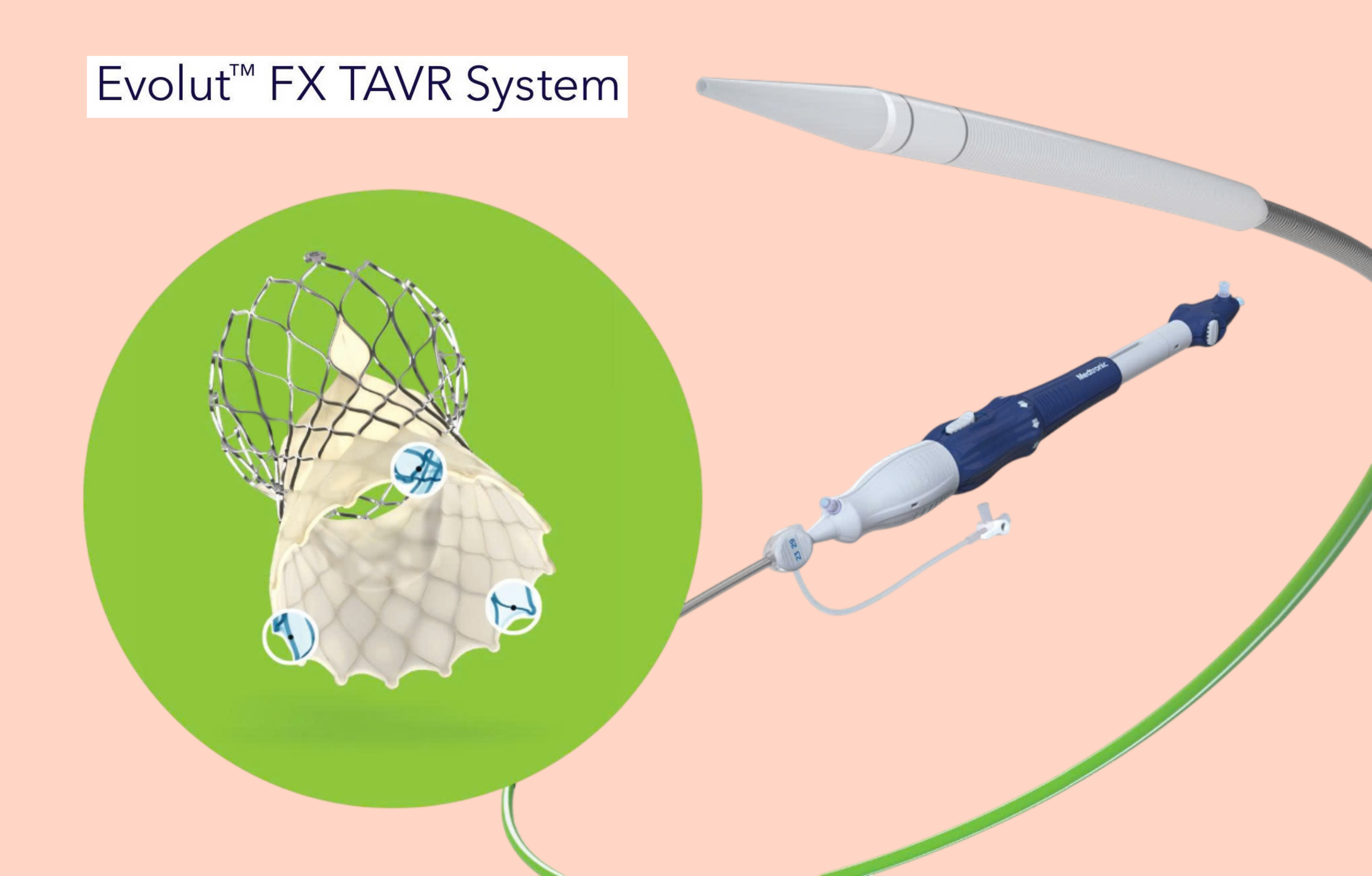Headline: Vietnamese Doctor Pioneers Minimally Invasive Heart surgery, Offering Hope to High-Risk Patients
dateline: Ho Chi Minh City, Vietnam
Dr. Ho Minh Tuan, head of the Cardiology and Interventional Cardiology Department at FV Hospital in Ho Chi Minh City, is revolutionizing the treatment of complex cardiovascular diseases. Tuan has successfully treated thousands of patients with conditions like myocardial infarction, coronary artery disease, heart failure, and hypertrophic cardiomyopathy, often saving lives with what he calls strict adherence to “gold standard” protocols in cardiovascular emergencies.
What sets Tuan apart is his commitment to minimally invasive techniques, allowing him to treat conditions that once required open-heart surgery. One of his most recent advancements is the deployment of the new-generation Evolut™ FX aortic valve replacement technology.This transcatheter aortic valve implantation (TAVI) procedure, combined with advanced 3D imaging and artificial intelligence, enables him and his team to treat complex cases without the risks and lengthy recovery times associated with traditional surgery.
“We chose the latest generation Evolut™ FX valve used in Vietnam,with a flexible design that can adapt to a complex anatomy,helping to position the valve in a safe and effective way,” said Dr. Tuan.
A recent case exemplifies the impact of Tuan’s approach. Ms. VTP, a 65-year-old patient from Vung Tau, was diagnosed with severe aortic valve stenosis and a rare congenital mitral valve defect. Without intervention,Tuan explained,Ms. VTP would have faced “difficulties to breathe,a lack of blood intake to the body and will face a high risk of heart failure and sudden death.”
Tuan proposed a TAVI procedure using the Evolut™ FX valve, aided by 3Mensio software that uses AI to analyze CT images, providing detailed data on valve size and positioning. The procedure,which took only 45 minutes,was a success.
“When I woke up after the intervention, I felt healthy and lightly as if I had just been sleeping well, with little pain or discomfort,” ms. VTP said. She was discharged from the hospital just two days later, reassured by Tuan that “The new Evolut ™ valve can operate stable for 15 to 20 years, the valve replacement rate after 20 years being only 1 to 2 %.”
Tuan’s dedication to innovation stems from his extensive training, including fellowships at the National Institute of Cardiology in Malaysia and the Saiseikai Yokohamashi Tobu hospital in Japan. He says that he frequently enough faced situations where patients seemed beyond help.
“This made me dream of a complete cardiovascular center, where patients would be treated with the most modern techniques, thus saving the lives of many seriously ill patients and allowing them to benefit from a good quality of life when they leave the hospital,” said the doctor.
He emphasizes that FV Hospital prioritizes patient care above all else. “FV always favors the rescue of patients, hospital costs being calculated later. I chose FV as I can save patients without hesitation,” said the doctor.
FV Hospital has implemented standards that exceed international norms for emergency cardiac care. While international guidelines recommend that the time between a patient’s arrival in the emergency room with a coronary event and the completion of intervention should be less than 90 minutes, FV Hospital aims for 70 minutes. According to the Cardiology Department, 99% of acute myocardial infarction cases treated at FV meet this target, with a survival rate exceeding 95%.
While Dr. Tuan’s work is undoubtedly notable, some cardiologists caution that TAVI procedures, while less invasive, may not be suitable for all patients. Open-heart surgery remains a viable option for certain complex cases or when other heart conditions need to be addressed together. additionally, the long-term durability of TAVI valves is still being studied, and patients require ongoing monitoring.
Despite these considerations, Dr. Tuan’s pioneering work offers new hope to patients with complex cardiovascular conditions, especially those who are not ideal candidates for traditional open-heart surgery.
FAQ: Minimally Invasive Heart Valve Replacement
Q: What is TAVI?
A: Transcatheter aortic valve implantation (TAVI) is a minimally invasive procedure to replace a narrowed aortic valve that fails to open properly (aortic valve stenosis).
Q: Who is a good candidate for TAVI?
A: TAVI is frequently enough recommended for patients with severe aortic stenosis who are at high risk for complications from traditional open-heart surgery. Your doctor will assess your overall health and heart condition to determine if TAVI is the right option for you.
Q: What are the benefits of TAVI compared to open-heart surgery?
A: TAVI offers several advantages, including a smaller incision, shorter hospital stay, faster recovery time, and reduced risk of complications.Q: What is the recovery process like after TAVI?
A: Most patients can return home within a few days after TAVI. Your doctor will provide specific instructions for your recovery, including medication management, activity restrictions, and follow-up appointments.
Q: How long do TAVI valves last?
A: Studies have shown that TAVI valves can last for at least 10 years, and ongoing research is evaluating their long-term durability. Dr. Tuan notes Evolut valves can operate stably within 15 to 20 years, with a valve replacement rate after 20 years being only 1 to 2%.
but with cardio,’in an lipe is
Revolutionizing Cardiac Care: An Interview with Dr. Anya Sharma on Minimally Invasive Heart Surgery in Vietnam
Ho Chi Minh City, Vietnam – Archyde News recently sat down with Dr.Anya Sharma, a leading cardiologist and medical correspondent, to discuss teh groundbreaking work of Dr. Ho Minh Tuan and the advancements in minimally invasive heart surgery being pioneered at FV Hospital in Vietnam.
The TAVI Revolution: A New Era in Cardiac Treatment
Archyde News: Dr. Sharma, thank you for joining us. Could you briefly explain the meaning of Dr. Tuan’s work in the context of cardiovascular care?
Dr. Sharma: Certainly.Dr. Tuan is at the forefront of a important shift in how we treat complex heart conditions.His adoption of minimally invasive techniques, especially Transcatheter Aortic Valve Implantation (TAVI), using the latest Evolut™ FX valve, is offering new hope to patients who might not have been suitable candidates for traditional open-heart surgery. This is particularly critically important in areas like Vietnam, where access to advanced cardiac care can be limited.
Minimally Invasive techniques and Patient Outcomes
Archyde News: The article mentions Ms. VTP’s case.Can you break down why the TAVI procedure was so effective for her?
Dr. Sharma: Ms. VTP’s case highlights the benefits perfectly. She had severe aortic valve stenosis and a congenital mitral valve defect. Traditional surgery would have involved significant risks and a prolonged recovery. TAVI, coupled with the advanced 3D imaging and AI provided by software like 3Mensio, allowed Dr. Tuan to replace the valve with a much smaller incision, leading to a quicker recovery and substantially improved quality of life for her. The Evolut™ FX valve’s design allows for a tailored fit based on a patient’s complex anatomy, leading to safer and more effective valve placement.
Addressing Challenges and Future Directions
Archyde News: The article also brings up some concerns regarding the long-term durability of TAVI valves. What are your thoughts on this aspect?
Dr. Sharma: It’s crucial to acknowledge that while TAVI offers remarkable benefits, it’s not a one-size-fits-all solution. The long-term durability of these valves is still being studied. Patients require ongoing monitoring, and, as noted, open-heart surgery may still be necessary in certain complex cases. It is important however in Vietnam that Dr. Tuan has noted and is confident that the latest-generation Evolut valves are expected to operate stably for 15 to 20 years.This is huge in improving the availability of treatments for complex conditions.
Archyde News: Given the progress in this area, what are the most exciting advancements you anticipate in cardiovascular care in the near future?
Dr. Sharma: I see exciting potential in combining AI with imaging. This includes both the progress of even more minimally invasive technologies and the advancement of 3D imaging to provide highly precise and detailed data for treatment. I strongly believe that better patient care will improve the lives of patients world-wide.
Prioritizing Patient Care and Community Impact
Archyde News: The article emphasized FV Hospital’s commitment to patient care. How does dr.tuan’s approach reflect this?
Dr. Sharma: The fact that FV Hospital aims to perform interventions within 70 minutes of a patient’s arrival with this type of event, exceeding international standards says it all. Dr. Tuan’s focus on using the most advanced techniques and his dedication reflects the hospital’s prioritization of patient well-being. this is evident in his approach. To him, the patient always comes first.
Archyde News: Thanks for taking the time to speak with us, Dr. Sharma. Is there anything else you would like to add?
Dr. Sharma: I would like to stress the need for earlier diagnosis and treatment of heart conditions. If any patient experiences chest pain, shortness of breath, or other symptoms, they should seek immediate medical attention. The progress we’re seeing demonstrates that this dedication can significantly improve outcomes. The more individuals gain access to quality care,the more lives can be saved.








